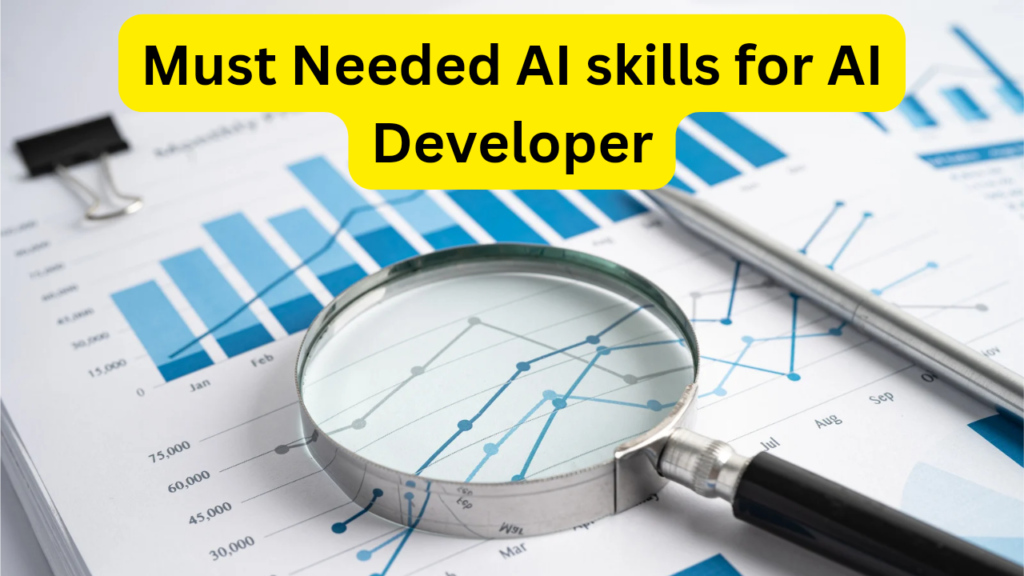To excel in an AI developer interview, you should have a strong foundation in both AI and software development. Here are some top skills and knowledge areas to focus on:

1. Machine Learning and Deep Learning: Understand the fundamentals of machine learning algorithms, neural networks, and deep learning frameworks like TensorFlow and PyTorch.
2. Data Manipulation and Analysis: Proficiency in data preprocessing, feature engineering, and data analysis using tools like NumPy, Pandas, and scikit-learn.
3. Programming: Be skilled in languages such as Python, and have a good understanding of data structures and algorithms.
4. Model Development: Know how to build, train, and evaluate machine learning models for various tasks, including classification, regression, and natural language processing.
5. AI Libraries and Frameworks: Be familiar with popular AI libraries and frameworks, like scikit-learn, TensorFlow, PyTorch, and Keras.
6. Computer Vision: If relevant to the job, have expertise in computer vision techniques and libraries, such as OpenCV.
7. Natural Language Processing (NLP): Understand NLP concepts, tools, and libraries, like spaCy, NLTK, and Hugging Face Transformers.
8. Data Handling: Proficiency in handling large datasets, including distributed computing frameworks like Apache Spark.
9. Software Engineering: Strong coding skills, knowledge of software design principles, version control (e.g., Git), and experience with collaborative development (e.g., GitHub).
10. Cloud Platforms: Familiarity with cloud services like AWS, Azure, or Google Cloud, which are often used for deploying AI models.
11. Model Deployment: Knowledge of deploying AI models using containerization (Docker) and orchestration (Kubernetes) and web services (e.g., Flask, FastAPI).
12. Mathematics: A solid understanding of linear algebra, calculus, and statistics is essential for AI algorithm development.
13. Problem-Solving: Be able to apply AI techniques to real-world problems and demonstrate your problem-solving skills during interviews.
14. Communication: Strong communication skills are vital to explain your ideas, methodologies, and results clearly.
15. Continuous Learning: Stay updated with the latest AI advancements and research papers in your field of interest.
16. Practical Experience: Build a portfolio of AI projects, participate in Kaggle competitions, and contribute to open-source AI projects. Remember that the specific skills required may vary depending on the job role and the company you are interviewing with. Tailor your preparation to the job description and the organization’s needs.